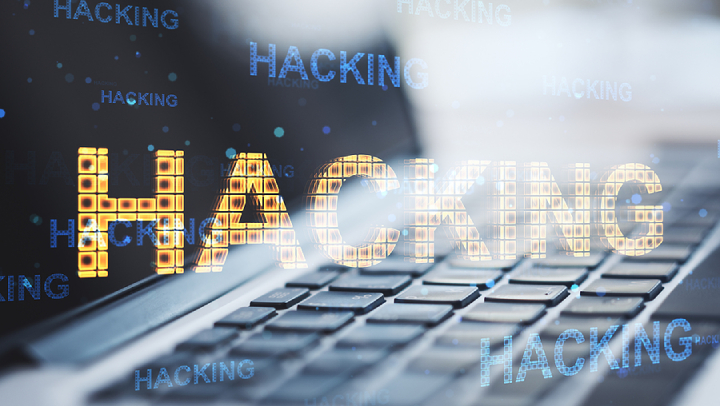
In the rapidly evolving world of cybersecurity, ethical hackers play a vital role in safeguarding organisations from malicious actors. Their responsibilities include identifying vulnerabilities, strengthening defences, preventing cyberattacks before they occur, and even reverse engineering. Yet, as technology advances at breakneck speed, so too do the tools, methods, and strategies used by cybercriminals. Hence, for ethical hackers, staying ahead of the curve is an absolute necessity.
This can be particularly daunting for those new to the field, such as individuals who have recently completed a certified ethical hacker course. While they may have acquired strong foundational skills, the challenge lies in maintaining relevance by continuously learning about emerging threats, zero-day exploits, and evolving attacker methodologies.
This article explores the strategies ethical hackers can adopt to remain up-to-date and together, they form the foundation for long-term effectiveness in protecting organisations and digital ecosystems.
1. Engaging with Online Communities and Forums
The cybersecurity community is highly collaborative, providing ethical hackers with opportunities to share knowledge, exchange insights, and learn from one another. Online forums and discussion groups have become indispensable spaces for keeping pace with the latest developments.
On platforms like X (formerly Twitter), industry experts, organisations, and researchers regularly post updates on vulnerabilities and security incidents. By following relevant hashtags, ethical hackers can receive real-time insights into breaking news and trends, often before they are covered in mainstream media.
Interactive communication platforms such as Discord also host thriving cybersecurity communities. Groups like Ethical Hacking on Discord or Security Awareness on Slack facilitate live discussions, knowledge sharing, and incident reporting. These communities are especially useful for fostering peer-to-peer learning and offering diverse perspectives.
For more structured engagement, Reddit remains an important source of information. Subreddits like r/netsec, r/cybersecurity, and r/ethicalhacking are hubs where security practitioners debate vulnerabilities, explore new attack vectors, and share resources.
Additionally, Information Security Stack Exchange provides a Q&A-style forum for more technical inquiries. Topics range from penetration testing and malware analysis to encryption and risk management, enabling ethical hackers to learn from specialists in specific domains.
2. Following Cybersecurity News Outlets and Threat Intelligence Platforms
Keeping up with the latest developments requires reliable and timely information sources. Ethical hackers benefit greatly from subscribing to cybersecurity news outlets and leveraging threat intelligence platforms.
- Cybersecurity Newsletters: Organisations such as the SANS Institute and US-CERT issue regular newsletters summarising vulnerabilities, malware outbreaks, and recommended patches. These condensed updates allow ethical hackers to stay informed without being overwhelmed by raw data.
- Specialist Websites and Blogs: Reputable platforms like Krebs on Security, Dark Reading, The Hacker News, and Bleeping Computer provide in-depth reporting and analysis of cyber incidents. These outlets often include interviews with experts, detailed case studies, and emerging trends.
- Threat Intelligence Platforms: Tools like AlienVault OTX, IBM X-Force Exchange, and FireEye Threat Intelligence consolidate real-time data from across the web. By monitoring these platforms, ethical hackers gain insight into indicators of compromise (IOCs), zero-day exploits, and the tactics used by advanced persistent threats (APTs).
For practitioners, these resources are especially valuable when complemented by professional credentials such as a CompTIA certification in Singapore, which helps contextualise global threat intelligence within local regulatory and business frameworks.
3. Staying Informed Through White Papers and Security Research
Beyond news updates, many ethical hackers delve into research papers and white papers for a more technical understanding of threats. These resources provide detailed insights into how vulnerabilities are discovered and exploited, as well as how they can be mitigated.
- Security Research Blogs: Leading research teams such as Google Project Zero, SophosLabs, and Zerodium frequently publish analyses of vulnerabilities and malware behaviour. These insights are invaluable for understanding attack mechanics.
- Corporate White Papers: Companies like CrowdStrike, Palo Alto Networks, and Check Point release comprehensive reports outlining the tactics, techniques, and procedures (TTPs) of threat actors. Such documents often include lessons drawn from real-world cyber incidents.
- Academic Journals: Publications such as The Journal of Cybersecurity and IEEE Security & Privacy offer peer-reviewed research. These journals cover emerging areas like cryptography, intrusion detection, and artificial intelligence in security.
4. Participating in Security Conferences and Events
Cybersecurity is an ever-changing discipline, and in-person or virtual events provide opportunities to absorb the latest knowledge directly from industry leaders. Conferences bring together practitioners, researchers, and organisations to share insights and network.
- Black Hat: Known for its highly technical sessions, Black Hat is among the world’s most respected cybersecurity conferences. Attendees are exposed to groundbreaking research, newly discovered exploits, and emerging security solutions.
- DEF CON: Famous for its hands-on competitions and collaborative spirit, DEF CON attracts ethical hackers from across the globe. Workshops and “capture the flag” contests provide real-world scenarios for testing and refining skills.
Attending such events not only keeps ethical hackers updated but also offers them valuable networking opportunities to collaborate with peers and mentors.
5. Pursuing Continuous Training and Advanced Certification
The skills required to thrive in cybersecurity are not static. As attackers innovate, ethical hackers must continually refine their expertise through training and certifications. Some of the most widely recognised certifications include:
- Certified Information Systems Security Professional (CISSP): The CISSP certification is a respected credential covering topics from risk management to incident response.
- Offensive Security Certified Professional (OSCP): A hands-on certification requiring candidates to exploit vulnerabilities in controlled environments, reflecting real-world penetration testing challenges.
- Continuous Online Learning: Platforms such as Pluralsight, Cybrary, and Udemy provide on-demand courses in penetration testing, malware reverse engineering, and network defence.
By combining formal training with practical learning, ethical hackers maintain adaptability in an ever-changing threat landscape.
6. Leveraging Security Tools and Threat Detection Software
Finally, ethical hackers rely on advanced tools to identify vulnerabilities and detect threats in real time. These technologies not only improve efficiency but also serve as learning mechanisms by revealing attack patterns.
- Vulnerability Scanners: Tools such as Nessus, Qualys, and OpenVAS help uncover misconfigurations, outdated software, and exposed services.
- Threat Intelligence Tools: Platforms like MISP (Malware Information Sharing Platform) aggregate global threat data and provide actionable insights on indicators of compromise.
- Security Information and Event Management (SIEM) Systems: Tools such as Splunk, IBM QRadar, and Elastic SIEM consolidate and analyse logs across networks to detect anomalies and potential breaches.
Conclusion
Ethical hackers face a never-ending challenge: keeping pace with adversaries who are constantly innovating. The key to staying updated lies in combining the multiple strategies and finding the combination that works best for one’s needs. Ultimately, success in ethical hacking is not about acquiring knowledge once but about committing to continuous learning. By doing so, ethical hackers ensure that they remain effective defenders in an environment where threats evolve every day.
Stay ahead of evolving cyber threats with BridgingMinds’ ethical hacking and cybersecurity training. From beginner foundations to advanced certifications like CompTIA Security+, our hands-on programs give you the practical skills to defend real-world systems. Start building your expertise today and become the ethical hacker organisations can truly rely on.


